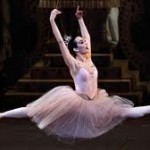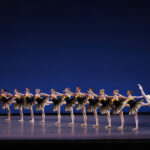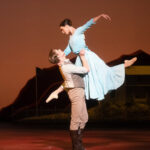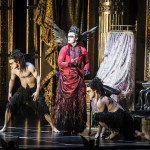Leigh Donlan reviewed the March 1st Saturday matinee of Swan Lake at the Koch Theater
Having to stare at length at Per Kirkeby’s abstract set design during a gorgeous Tchaikovsky overture wasn’t the best way to start Peter Martins’ Swan Lake. The wearying brown and gray tones offered no indication that we might soon be transported into a magical world of tragic love, where the beautiful Odette is a swan by day and a cursed maiden by night. There was no sense of mystery or intrigue, save the music.
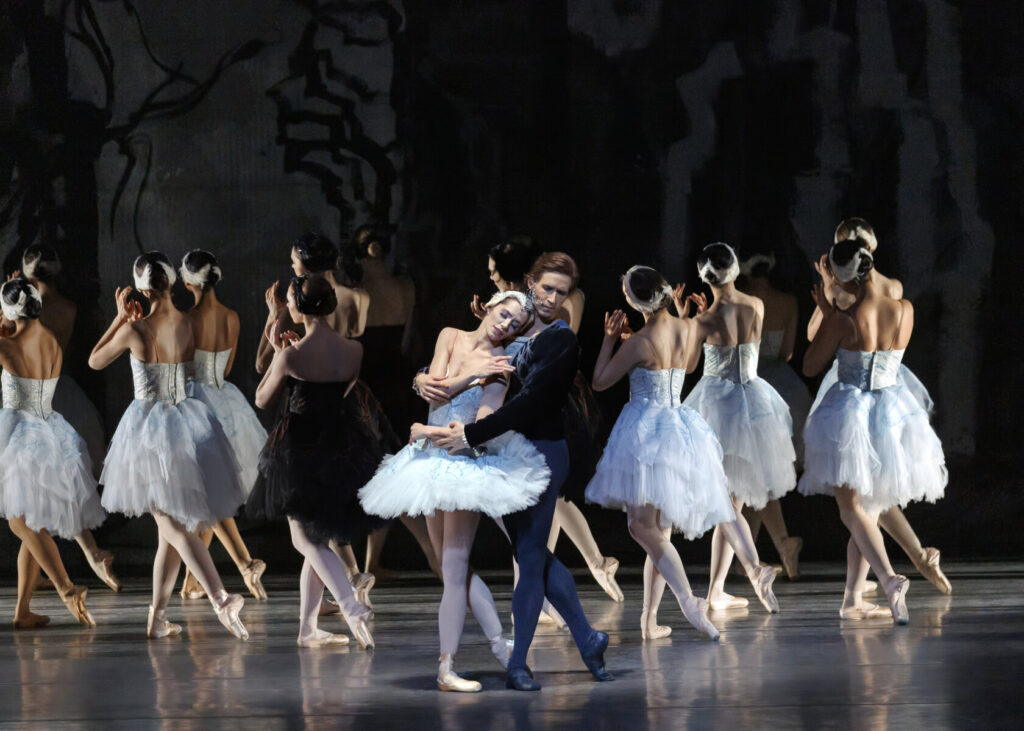
Moving on to Act 1, our Saturday matinee court jester was one of City Ballet’s most celebrated and talented – Daniel Ulbricht – whose natural exuberance brightened the Koch Theater. But the staging relied too heavily upon him, and upon Tchaikovsky to evoke the celebratory mood of a 21st birthday party for Prince Siegfried (Joseph Gordon), because it certainly wasn’t in the choreography – rudimentary movements resembling recycled combinations from ballet classes. One sparkling element of this act was the queen’s gown, an Elizabethan design in gold and teal, with a ruff collar.
As Act 1 progressed, we became cripplingly dependent on the jester to bring the production to life, with Siegfried and Benno fading like distant memories. It felt like we were just waiting for Odette to arrive and save us. Thankfully she did, and the ever-lovely Unity Phelan did not disappoint. Saturday was only Phelan’s third performance in the role but you would have never guessed that. The role is a natural fit for her luxurious port de bras, soft elegance, impeccable technique and musicality.
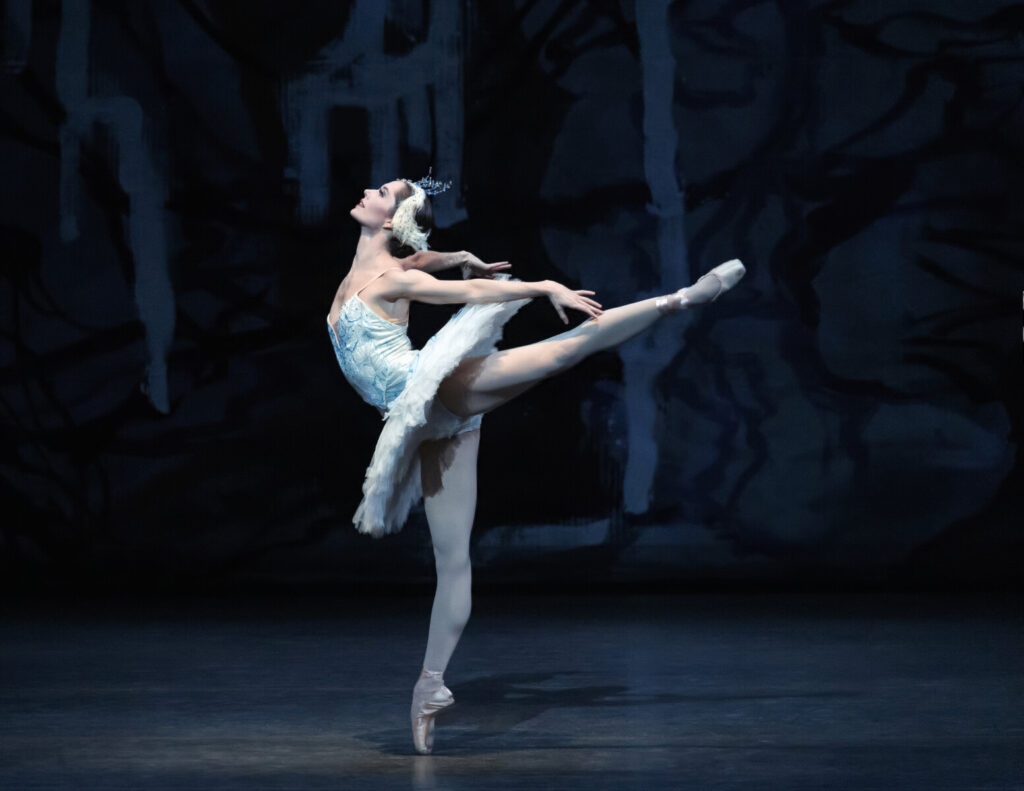
But soon enough we were distracted from Phelan’s loveliness by Von Rotbart (Aarón Sanz) standing on a rock, flapping a metallic-orange cape. He presented more like a wind-up Halloween figurine than a sorcerer. Thankfully the swans swooped in to protect Odette. Martins’ repetitive use of vertical lines worked well here for the corps de ballet’s synchronizations.
By Act 2, the ballet was collapsing under the weak narrative. It fell to Odile to keep us interested. There were some charming phrases from the six princesses bidding for Siegfried’s love and an impassioned Russian Dance from Emma Von Enck and Jovani Furlan, but at that point we were just waiting for Odile’s 32 fouettes, which she nailed without a flinch. Her partnering with Gordon strengthened as the pace and drama picked up, and the hesitation that we saw in the Act 1 pas de deux disappeared.
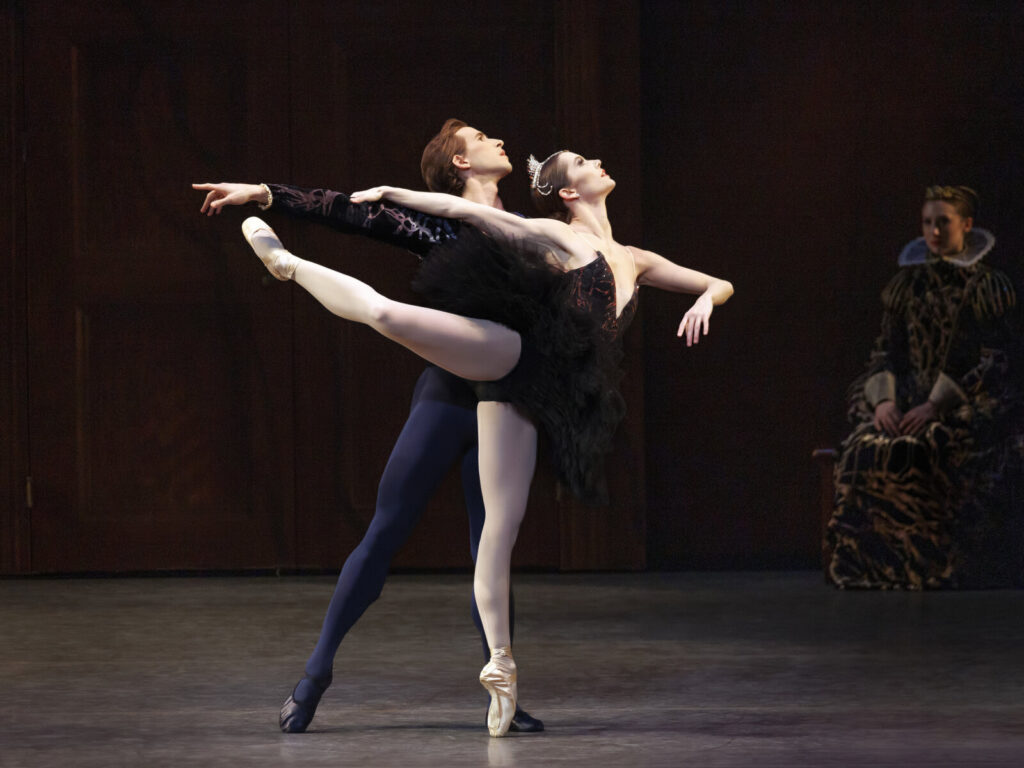
We barely grasped a sense of the story outside of musical dictates; scene changes blurred and the finale was inconclusive. There are various production endings, but typically Odette and Siegfried’s love for each other breaks Von Rotbart’s spell, he dies, and Odette and Siegfried live happily ever after. Here, we watch Odette fade away with her flock, leaving Siegfried heartbroken. Was the spell not broken? Does evil triumph?
The lackluster choreography, staging, costumes and sets are reason enough to wonder why this production is still in rotation. We could not “see” the music. But it was the lack of imaginative work for the company’s stellar principals and soloists, apart from the role of Odette/Odile, that was most dismaying.



